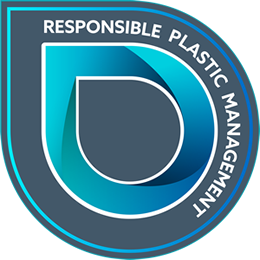Responsible Plastic Management in the Seafood Sector
It was very significant for the RPM Program to get some key assurance scheme support at the Global Seafood Expo in Barcelona in April.
MarinTrust the assurance program which represents integrity standards in the fishmeal and fish oil sector was the first scheme to sign up to the Zero Plastic to Landfill Challenge for its London offices.
As the world becomes more aware of the impact of plastic pollution on our oceans, it's crucial that all businesses take steps to reduce their plastic waste. The seafood industry is no exception. Responsible plastic management not only benefits the environment but also has significant advantages for businesses.
More seafood assurance schemes committed at the Global Exo to also sign up for their offices and to set the example for the seafood sector. They are ‘walking the talk’.
A study by the Ocean Conservancy and the McKinsey Centre for Business and Environment found that the global seafood industry generates around 10 million metric tons of plastic waste each year. This adds to the global plastic waste problem. Plastic waste associated with the seafood industry can come from a variety of sources and threatens the reputation of the sector.
Sustainable business practices contribute to the health of the community and economy. By reducing plastic waste, seafood companies can reduce their carbon footprint and minimize their impact on the environment. This, in turn, can improve the reputation of the business and attract more environmentally conscious consumers.
Responsible plastic management can also lead to cost savings for seafood companies. By reducing their use of single-use plastics, companies can save money on materials and waste disposal.t's important to note that plastic is seen as vital to the seafood industry, but by using more durable and reusable materials, companies can reduce their overall plastic usage while still maintaining the quality of their products and water related systems.
Regulations are being phased in to apply to all seafood, but seafood companies can get ahead of the curve by proactively implementing responsible plastic management practices. This can position them as industry leaders and help them stand out in an increasingly competitive market.
To reduce plastic pollution in the ocean, many organizations and governments need to start working together to promote best practices, reduce plastic packaging waste, and increase recycling and reuse of plastic materials. Zero plastic to Oceans can start by the journey of Zero Plastic to Landfill.
To reduce plastic pollution in the ocean, many organizations and governments need to start working together to promote best practices, reduce plastic packaging waste, and increase recycling and reuse of plastic materials. Zero plastic to Oceans can start by the journey of Zero Plastic to Landfill.
By implementing responsible plastic management practices, seafood businesses can not only help protect our oceans but also create a more sustainable future for themselves and their customers.
Speaking at the Global Seafood Expo Francisco Aldon MarinTrust CEO stated “By joining the challenge we want to lead from the front and demonstrate our commitment to sustainability and responsible business practices. By eliminating our plastic waste to landfill, we will play our part to help protect the environment, preserve natural resources, and contribute to a more sustainable future. It’s important for MarinTrust to lead by example and inspire others to follow.”
Aaron Marshall, Engagement Director of the RPM Program welcomed MarinTrust and said “It’s great to have their seafood sector influence associated with the Program and the Zero Plastic to Landfill Challenge. Kudos for demonstrating commitment to helping to protect our planet both above and below water through Responsible Plastic Management actions.”
Aaron Marshall, Engagement Director of the RPM Program welcomed MarinTrust and said “It’s great to have their seafood sector influence associated with the Program and the Zero Plastic to Landfill Challenge. Kudos for demonstrating commitment to helping to protect our planet both above and below water through Responsible Plastic Management actions.”
MarinTrust joins other seafood organisations that have already started their responsible plastic management journey and we look forward to welcoming many more to the RPM Program.
About MarinTrust
MarinTrust is an international organization dedicated to promoting sustainable practices in the global seafood industry. Founded in 2014, MarinTrust is a certification program that ensures responsible and sustainable production of fishmeal and fish oil. The organization's mission is to support and encourage the responsible sourcing of marine ingredients used in feed and food production. It currently certifies 49% of the global fishmeal and fishoil production.
MarinTrust provides a third-party certification scheme that sets environmental, social, and governance standards for the seafood industry. This certification is granted to companies that meet the organization's rigorous criteria for sustainable and responsible practices. The program aims to promote transparency, traceability, and accountability in the seafood supply chain by verifying that the fishmeal and fish oil used in animal feed and aquaculture production come from responsibly managed fisheries.
